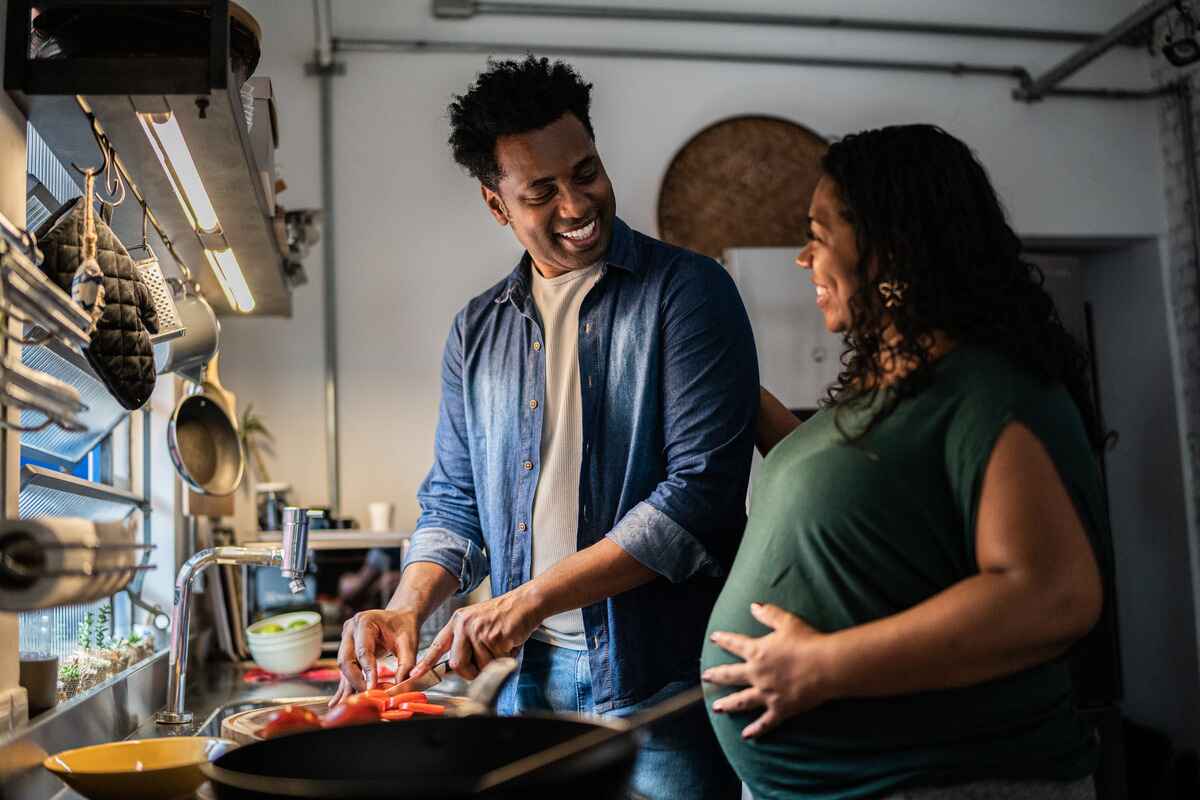Even the healthiest eaters may struggle with creating a balanced diet during pregnancy. Nausea, sugar cravings and increased hunger – not to mention the list of “off limit” items - can become a challenge.
Yale New Haven Hospital affiliated high-risk pregnancy specialist Audrey Merriam, MD, MS, associate professor of Maternal-Fetal Medicine at Yale School of Medicine, says patients shouldn’t worry about being “perfect.” Instead, try to create balanced meals throughout the course of the pregnancy.
“Make sure you’re eating fresh fruits and vegetables, make sure you’re getting proteins, fats and carbohydrates. Carbohydrates are key for fueling yourself and for helping to support a growing fetus,” said Dr. Merriam.
Key nutrients during pregnancy
In addition to protein, fats and carbohydrates, patients will need to include a few key nutrients. Folic acid is vital for the baby’s development and can help prevent spina bifida and neural tube defects, which can happen early on in pregnancy. Therefore, it’s recommended to start a prenatal vitamin before becoming pregnant. Folic acid can also be found in broccoli, Brussel sprouts and leafy greens.
It’s common for many patients to become iron deficient during pregnancy. If a patient is anemic or has low iron levels, they may need to take an iron supplement during the third trimester. Try to pair iron rich foods with vitamin C for better absorption.
Calcium and vitamin D are also important, especially for those who live in the Northeast, where it’s hard to get adequate amounts of vitamin D through sun exposure. Consuming dairy products or supplementing through fortified foods can help meet those needs.
DHA, an Omega-3 fatty acid, is key for brain development. Many prenatal vitamins have DHA, but it can also be found in fish oil and seafood.
If spinach and salmon sound awful during the first trimester, don’t sweat it.
“The first trimester is not a time to perfect your diet. It’s a time to eat so you can go about your day and not feel ill all the time. If that means bagels and cream cheese for eight weeks, then so be it and then we can work on the diet in the second and third trimester,” said Dr. Merriam.
However, the old saying “eating for two” is a myth. Pregnant patients don’t need any additional calories during the first trimester and only need about 300 extra calories later in pregnancy.
Foods to avoid when pregnant
For years, pregnant patients were told to avoid foods that could put them at risk of foodborne illnesses like E. coli and listeria, namely deli meat and sushi. Dr. Merriam says the risk of getting sick from these foods is relatively low.
If patients are craving a sandwich, they can heat up deli meat to reduce their risk of contamination. If they want sushi, they should go to a reputable restaurant and make sure the fish they are eating is not sitting out. When eating fish, either cooked or raw, stay away from high mercury fish such as swordfish or tuna.
To further reduce the risk of contamination, focus on proper food preparation when cooking. Use a meat thermometer, wash produce and pay attention to food recalls.
While some patients may believe it’s ok to have an occasional glass of wine, there’s no known amount of alcohol that is safe during pregnancy.
Healthy meals for pregnancy
Not sure where to start? Take a look at some sample meals below. Each contains a mix of protein, fat and carbohydrates.
Breakfast
Eggs with toast or an English muffin on the side, or Greek yogurt with granola and berries
Lunch
Salad with added protein such as grilled chicken & a side of bread
Dinner
Pasta with turkey or lean ground beef meatballs & frozen peas or broccoli
Additional items
Sugar craving? An occasional cookie, ice cream or dark chocolate is fine! If you love coffee, about 200 milligrams of caffeine is the recommended daily amount during pregnancy. That equals about 2 small diner size cups of coffee.





